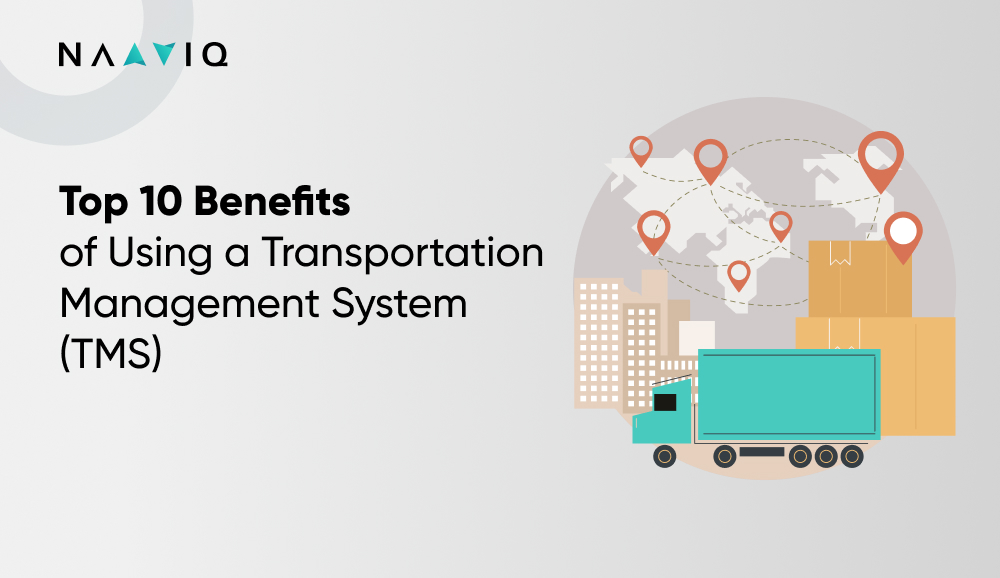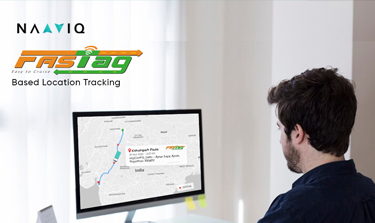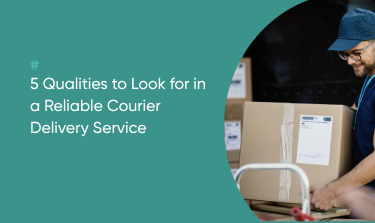In the modern world of Supply Chain, transportation is one of the key aspects necessary to ensure that supply chain functions properly. Businesses are constantly on the lookout for means to enhance their logistics activities in order to stay ahead of their rivals. One Transportation Management System (TMS) would enable a lasting solution for many of these challenges by easing, and, in many cases, automating the management of freight and logistics services. With the increase in the depth of supply chains, it goes beyond the luxury of using a TMS for any transport or logistics Company; it has become a requirement.

Here are the top 10 benefits of using a TMS for your business:
1. Enhanced Visibility and Real-Time Tracking
A TMS ensures complete visibility of all the processes involved in the supply chain. It makes no difference if the goods are being transported or held at a warehouse, or being transported from one country to another, a good TMS will enable you to track the progress of your consignments at every given moment. Such transparency helps in detecting disruptions beforehand and taking corrective steps to prevent delays.
Additionally, with features for location tracking, accurate delivery time estimates can be availed to customers, thus improving customer’s contentment and confidence. Being aware of the exact position of one's belongings anytime enhances prison discipline and encourages better management decisions.
2. Improved Cost Control and Savings
One of the main advantages of a TMS is the cost effectiveness. By efficient routing, shipment grouping, and prudent choices, a TMS reduces costs incurred in transportation. It will also choose the cheapest available carriers, considering current fuel costs and the price of labor among other costs.
In addition, TMS system reduces the dependency on manual procedures thereby reducing the administrative costs associated with it. For instance, with an automated freight audit and payment function, it becomes less time-consuming and less costly for an organization while at the same time reducing the chances of making billing mistakes that are usually common with manual submissions of invoices.
3. Streamlined Freight Payment and Audit
The payment of freight takes quite a long time, as it usually consists of a number of tariffs, pricing structures, and carriers’ contracts. A TMS simplifies this by automating the entire bookkeeping from matching paid invoices to original freight orders and then conducting an audit of the matched documents. This minimizes the chances that the company is over billed, therefore enhancing cost control and management of cash flows.
When a Transportation Management System is integrated with the accounting systems, it becomes easy to monitor costs and prepare reports showing opportunities for reduction of costs.
4. Optimized Route Planning
A TMS has the potential to optimize routes for cost and efficiency as one of its most significant benefits. In this case, the system assesses traffic trends, fuel use, road limitations, and climatic conditions in order to determine the most optimal route. This results in savings in transportation costs and quicker delivery times.
The improvement of the travel routes is not only helpful in maximizing profits and earnings but also helps address the issue of fuel use and thereby emissions. Given the significance of sustainability to businesses nowadays, a TMS can also be used to promote green logistics.
5.Better Carrier Management
Working with various carriers simultaneously is a complex matter for most companies. TMS solutions in this regard come handy by allowing users to manage all carrier details including performance history and contract negotiations in one place. It also enables companies to rate the carriers’ performance on metrics such as on-time delivery, cost per mile, and service quality.
What has been achieved? Enhanced collaboration among carriers, lesser delays and better information on carrier’s capacity and capabilities. This enables one to choose the most appropriate carrier for every shipment making it more convenient and economical in the transportation services availed.
6. Increased Efficiency through Automation
A transportation management system (TMS) enhances the efficiency of operations by performing a number of tedious tasks such as load planning, dispatch, and order management, freight invoice auditing, and others. Respective automation diminishes the possibilities of human errors, while it also allows employees to use their intelligence for better purposes such as strategic planning, or enhancing customer service.
Because of the modification, your business improvement becomes easier to manage vertical integration since it can handle a higher number of orders using the same number of employed workers. This efficiency also means that customers can be served within a shorter duration since more orders can be completed within a short period.
7. Compliance with Regulations
The logistics sector is susceptible to a great deal of regulation, including but not limited to the number of hours a truck driver may work, hardening measures against cargo theft and even environmental issues. Adhering to these rules and regulations is quite challenging, especially when there are varying regulations from different states within the country or even different countries.
A TMS helps to ensure that operations conform to legal regulations by means of automating compliance tracking and duration reporting. For instance, it could track driver hours in line with Hours of Service (HOS) statistics or help to fulfil customs rules for international cargoes. This mitigates any issues with penalties, fines and interruption in business activity due to failure of adherence to rules.
8. Scalability and Flexibility
With the expansion of your business, the transport operations become more complicated. A transportation management system is designed to be highly scalable and adaptive, hence able to grow along with the organization. A TMS can cater for growth whether it is going into new markets, increasing number of shipments or taking on more carriers.
Numerous TMS systems are of modular design. As a result, additional components such as fleet management or inventory management can be attached if need arises, without completely revamping the existing system. This makes it the perfect solution for both small scale industries and large corporates.
9. Data-Driven Decision Making
Many TMS systems are modular by design. Therefore, extra components like fleet management, inventory management, etc., can be attached if needed without the overhaul of the whole system. This is what makes it suitable for both budding sectors and huge multinationals.
By using analytics and reporting tools, you can identify trends, pinpoint inefficiencies, and optimize your logistics strategy. Predictive analytics can even forecast demand, allowing you to adjust capacity and resources proactively, further improving operational efficiency.
10. Improved Customer Service
In the final analysis, every transportation system is dedicated to one aim, which is to provide the services of transporting goods to customers in the most reasonable time and the most cost effective way possible. A TMS improves customer service by enabling the timely delivery of goods, updating the clients about the current whereabouts of their shipments, and allowing for special requests or last minute changes.
Having increased visibility of the entire supply chain allows for better communication with the customers. Order updates can be provided and problems anticipated and solved without involving the customer. Satisfied customers enhance the likelihood of repeat business, thus making their contentment an important aspect in any transportation plan.
Conclusion
It is known that a Transportation Management System is much more than an accessory to a 21st-century business. In the increasingly complex supply chain environment of today’s dynamic world, most companies would require a TMS system like NaaviQ is required, in order to remain competitive. Such a TMS improves visibility, cuts costs, increases efficiency, and provides the necessary flexibility for expansion to all types of organizations.
Regardless of the industry, be it delivery speed, freight cost containment or routes optimization, a TMS is a very useful tool that aids in streamlining processes and increasing productivity. Thanks to NaaviQ’s sophisticated TMS solution, you can tap into the full thrust of your transport and logistics strategy to enhance operational efficiency and service quality.
For any additional questions or services, please get in touch with us via email at info@naaviq.com.




